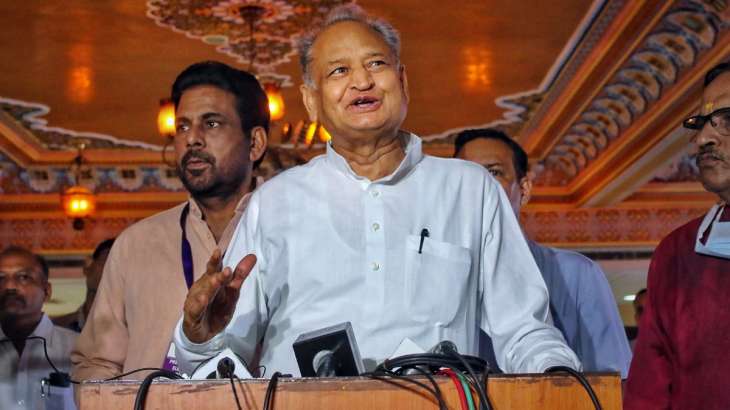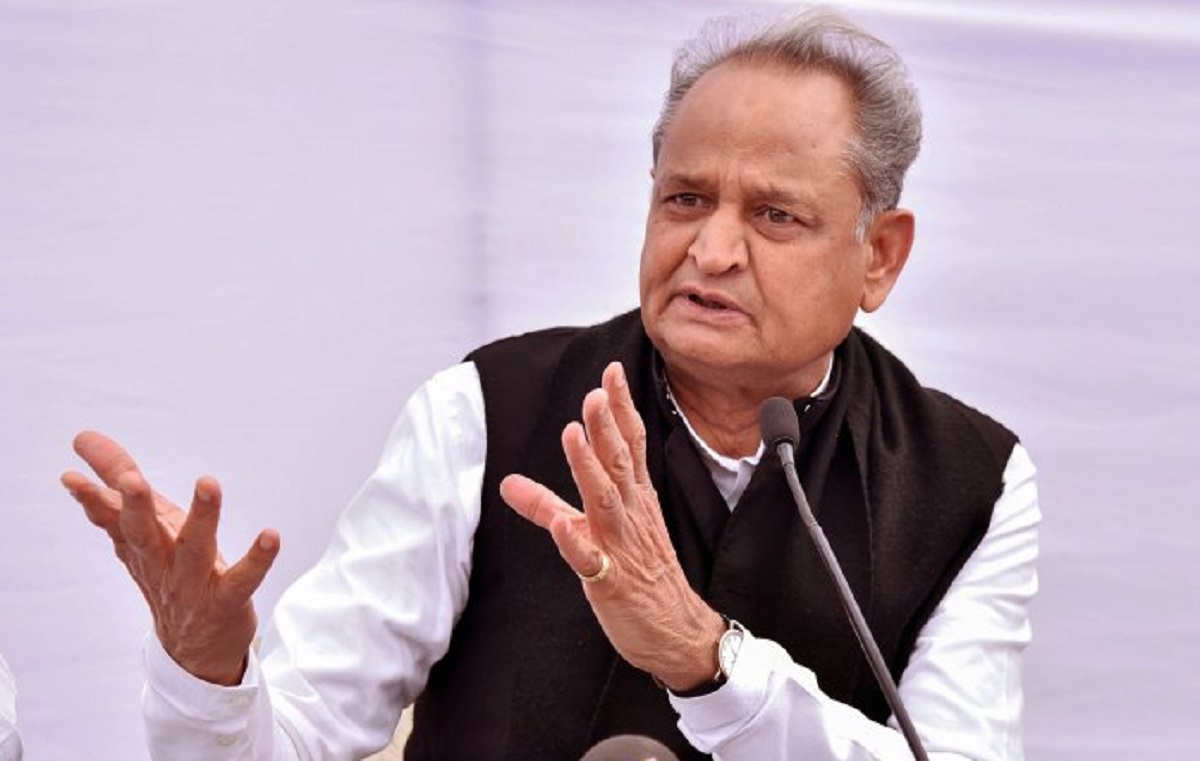Non-stop ED raids proof that…: Ashok Gehlot exudes confidence in Congress winning Rajasthan elections

Non-stop ED raids proof that…: Ashok Gehlot exudes confidence in Congress winning Rajasthan elections
Ashok Gehlot’s accusation of the Bharatiya Janata Party (BJP) using the Enforcement Directorate (ED) as a tool to target and intimidate the Congress underscores the intensifying rivalry between the two major political factions. The utilization of a significant government institution such as the ED in the context of political maneuvering and competition highlights the contentious nature of contemporary Indian politics, where allegations of using state machinery for partisan interests are not uncommon.
Gehlot’s assertion that the Congress is on track for victory in the upcoming polls, despite the purported interference by the ED, signifies the party’s resilience and determination in the face of adversarial tactics. This assertion serves to fortify the morale of the party’s supporters and convey a message of unwavering confidence in the party’s ability to weather external challenges posed by political opponents.
The rhetoric surrounding the purported misuse of state institutions for political gain underscores the broader concerns regarding the impartiality and autonomy of law enforcement agencies in the political landscape. The narrative propagated by Gehlot reflects the Congress party’s efforts to mobilize public opinion and garner support by portraying itself as a victim of targeted political persecution, thereby seeking to rally its voter base and reinforce its standing among the electorate.
As the political climate in Rajasthan intensifies in the run-up to the elections, Gehlot’s statements, and the ensuing political discourse are likely to shape public perceptions, influencing voter sentiments and attitudes. The allegations and counter-allegations between the Congress and the BJP underscore the high-stakes nature of the electoral battle, reflecting the competitive and dynamic nature of Indian politics.

Gehlot’s claims about the non-stop ED raids in Rajasthan and the alleged misuse of the ED by the BJP to target the Congress highlight the increasingly contentious nature of the political environment, particularly in the context of the state’s political landscape. The accusation of using state apparatus for political gains underscores the heightened polarization and strategic maneuvering characteristic of contemporary Indian politics.
The use of social media, such as the platform X, to communicate Gehlot’s message reflects the growing significance of digital communication in shaping political narratives and reaching a broader audience. The public dissemination of such statements through social media platforms serves to amplify the political discourse and engage the electorate, potentially influencing public opinion and perceptions in the lead-up to the elections.

As the political climate in Rajasthan continues to evolve, the interactions between political parties and the use of state institutions in the electoral process will likely remain a focal point of public discourse, contributing to the broader narrative of political competition and power dynamics in the state.
The context provided regarding the recent ED searches at a coaching institute, private individuals, and others in connection with the alleged question paper leak of the Rajasthan Eligibility Examination for Teachers, 2021, sheds light on the specific circumstances underpinning Ashok Gehlot’s allegations against the BJP. The ongoing money laundering probe underscores the seriousness of the issue and the significance of maintaining the integrity of the examination process, particularly in the education sector.
The raids conducted at various locations in Nagaur, Sikar, and Jaipur on October 17 indicate the ED’s proactive approach in investigating the alleged question paper leak, reflecting the authorities’ commitment to upholding the sanctity of the examination system and ensuring a fair and transparent process.
The timing of these developments, with the state elections scheduled for November 25 and the vote counting set for December 3, adds a layer of complexity to the political landscape in Rajasthan. The political environment leading up to the elections is characterized by heightened scrutiny and intensified efforts by political parties to consolidate their positions and garner public support.
The intersection of these developments underscores the intricate interplay between law enforcement, electoral politics, and public perception, emphasizing the significance of transparency and accountability in the electoral process. As the investigation unfolds, the outcome of the probe and its potential implications for the political climate in Rajasthan will likely continue to shape the narrative in the lead-up to the state elections.




